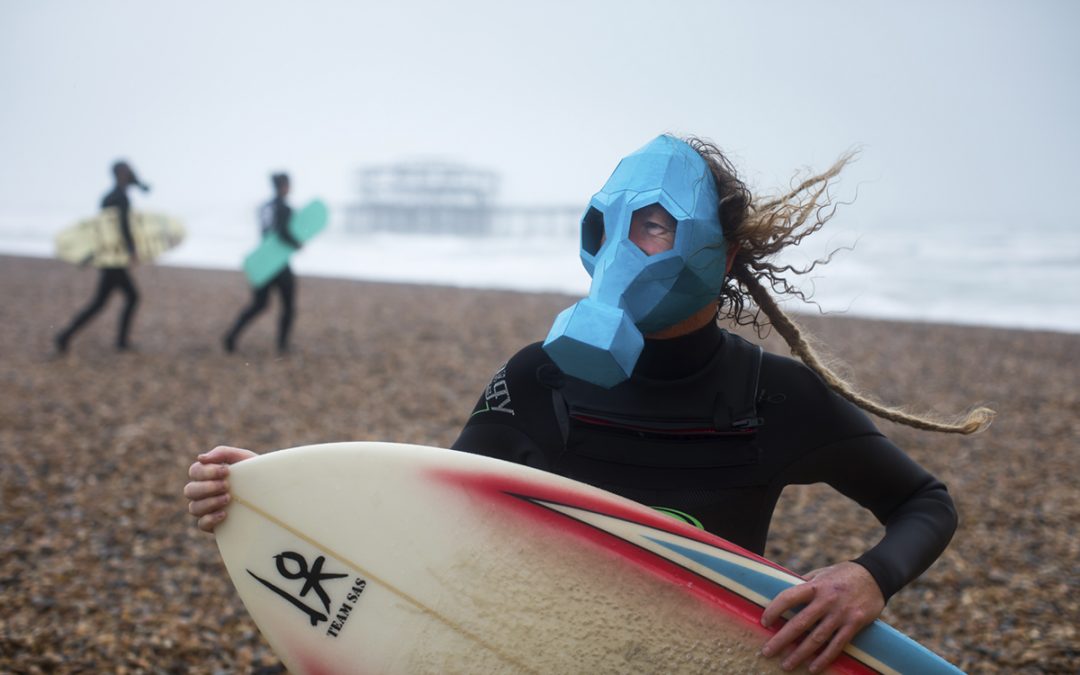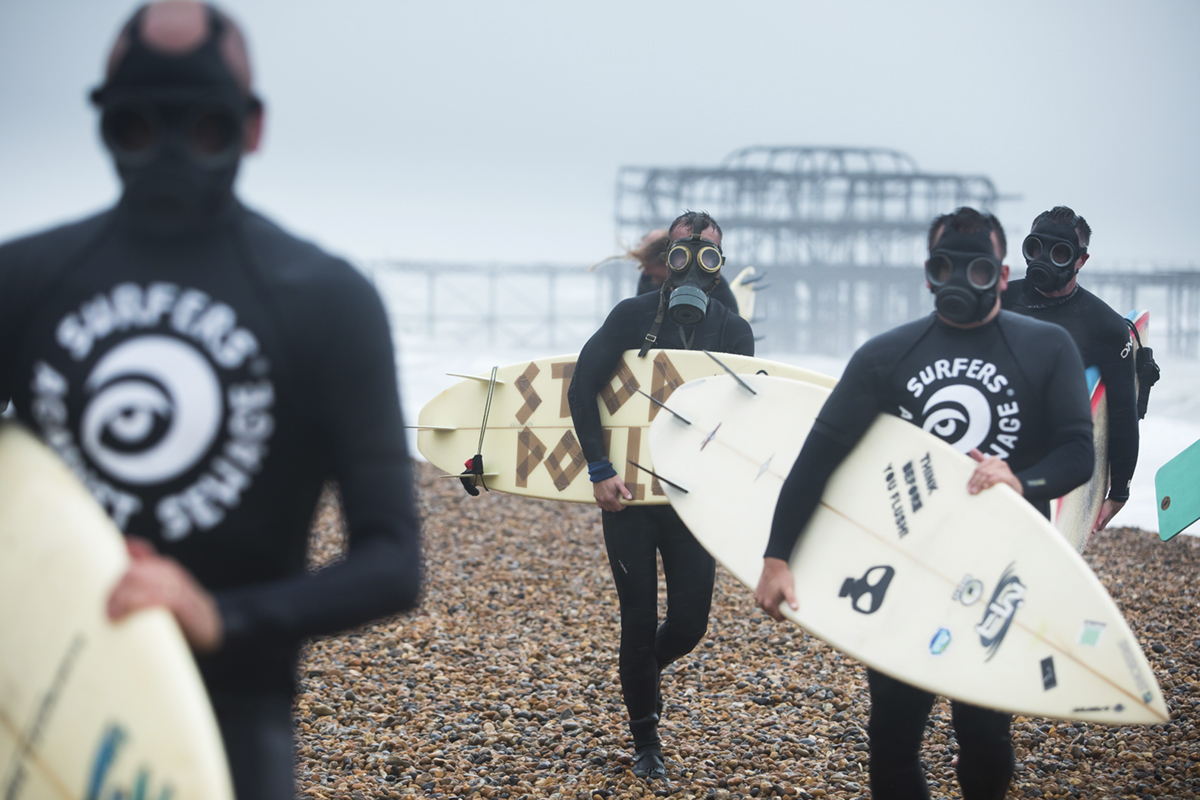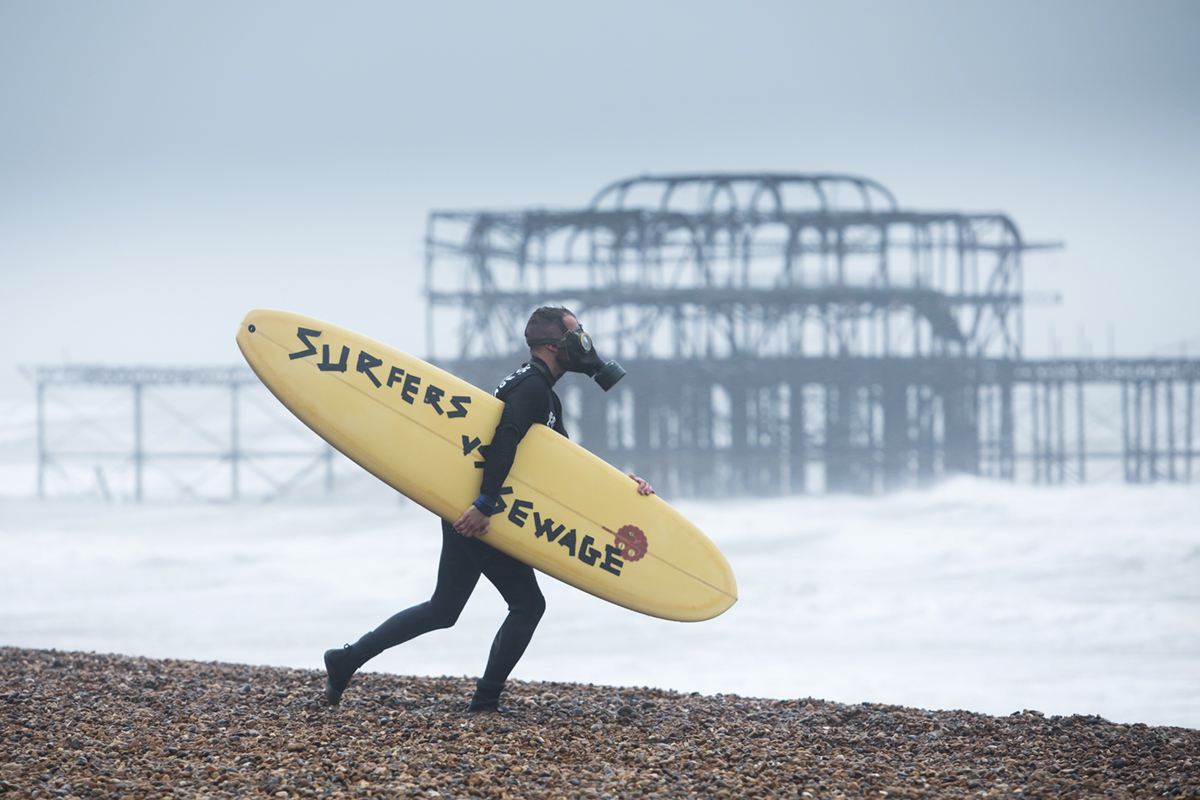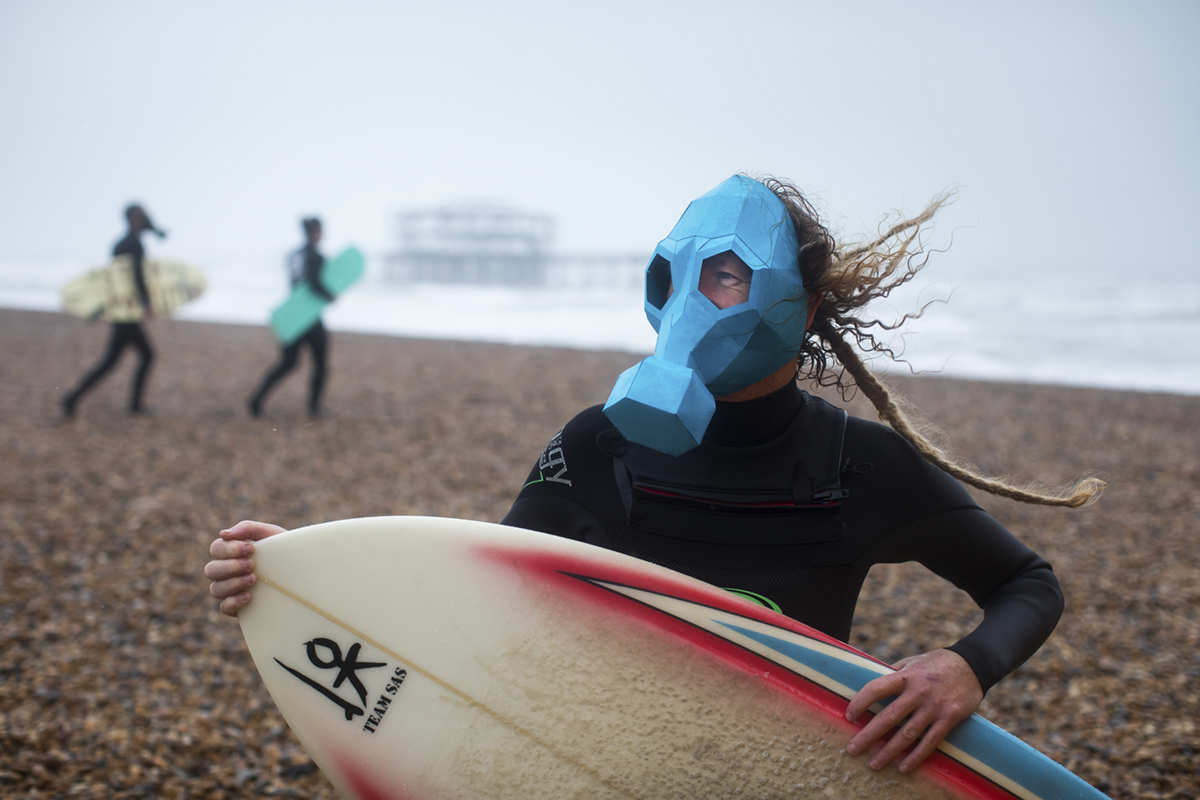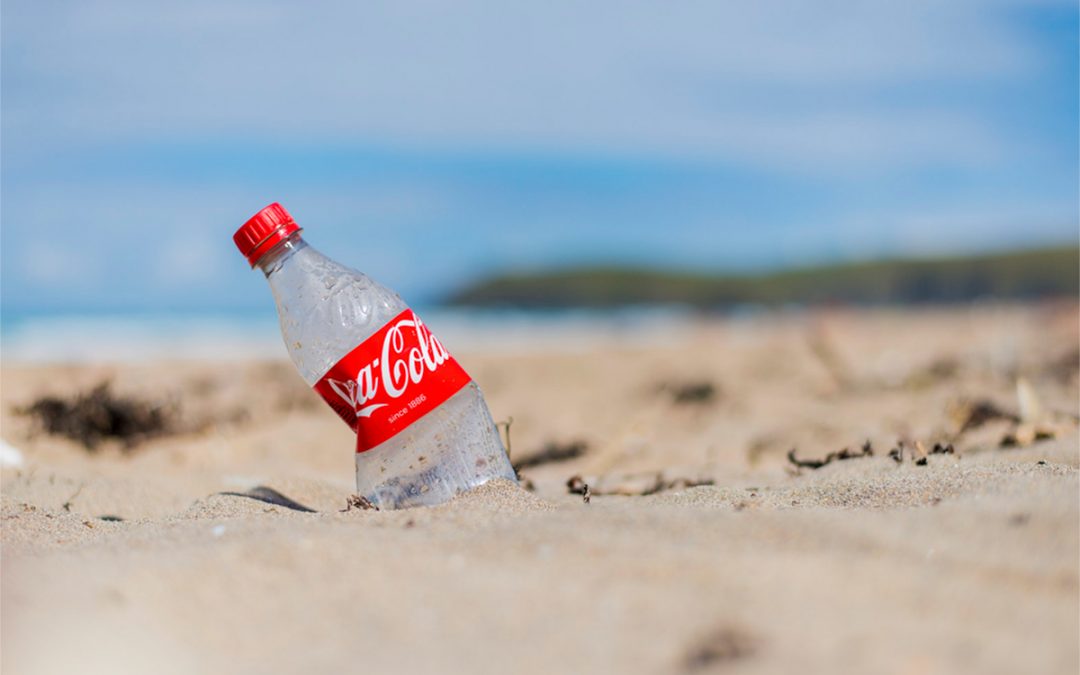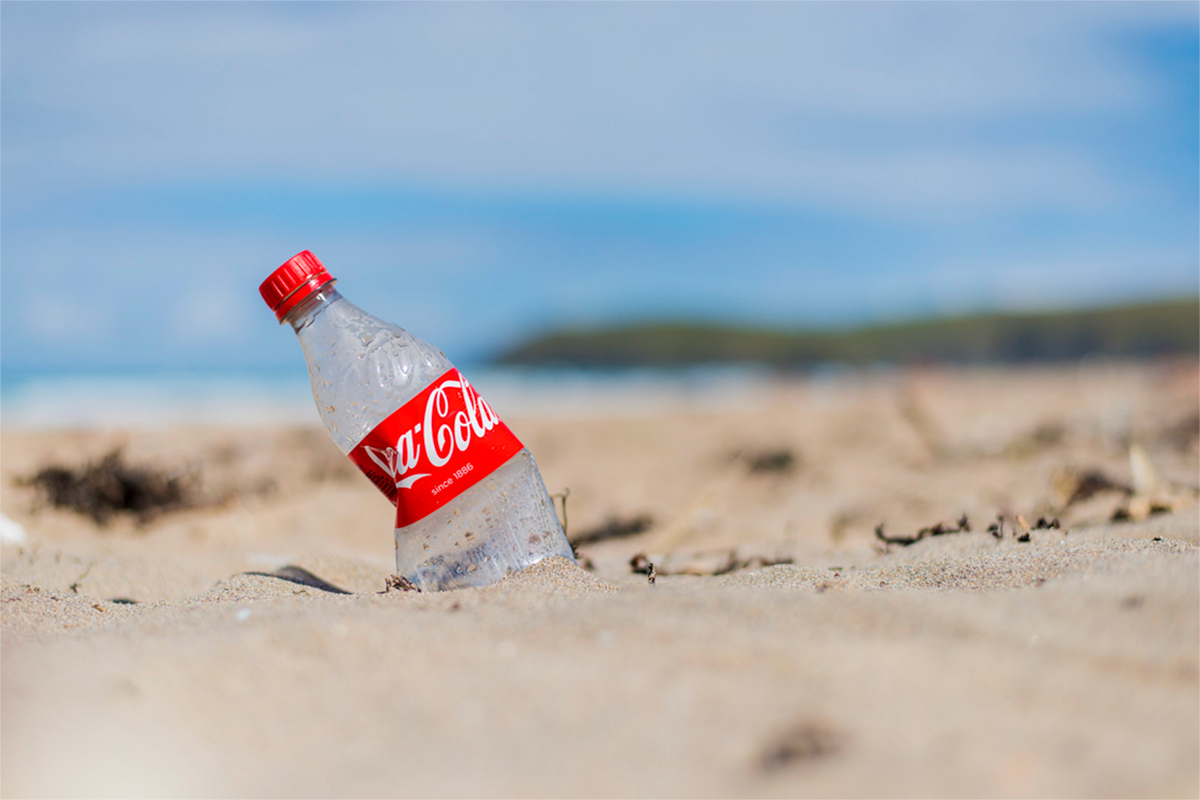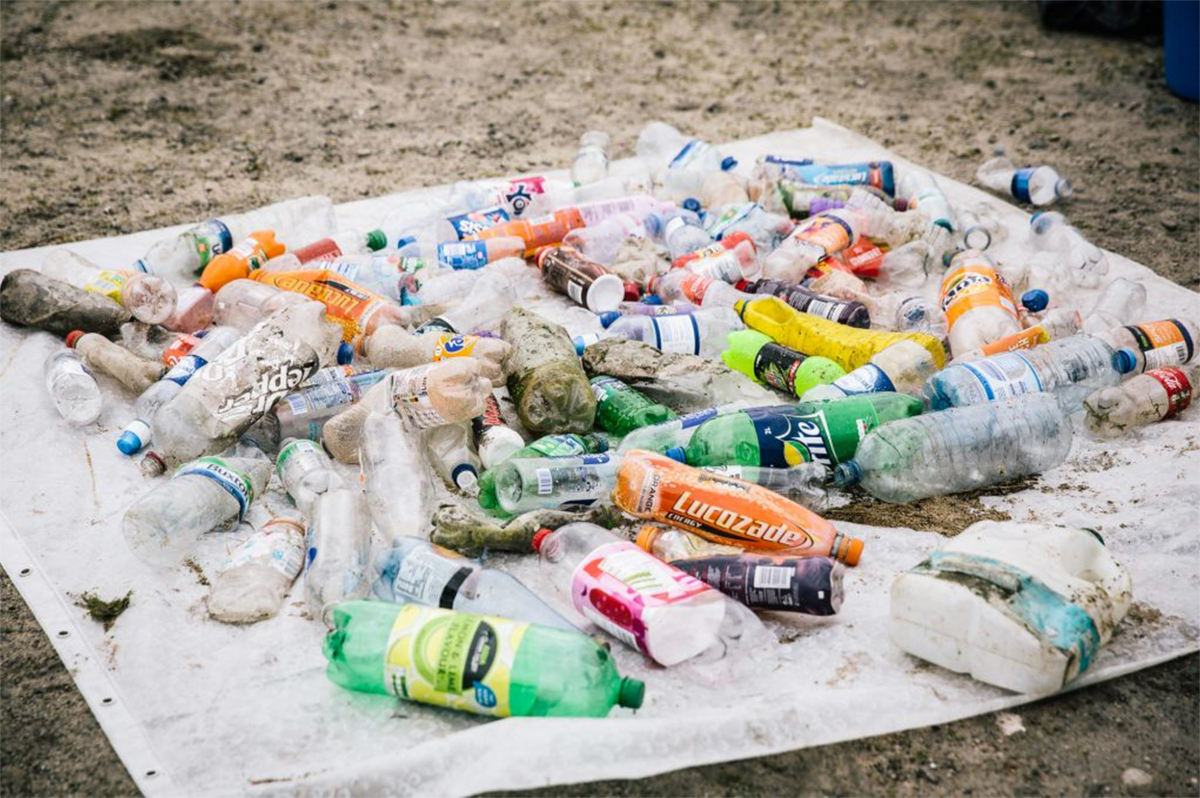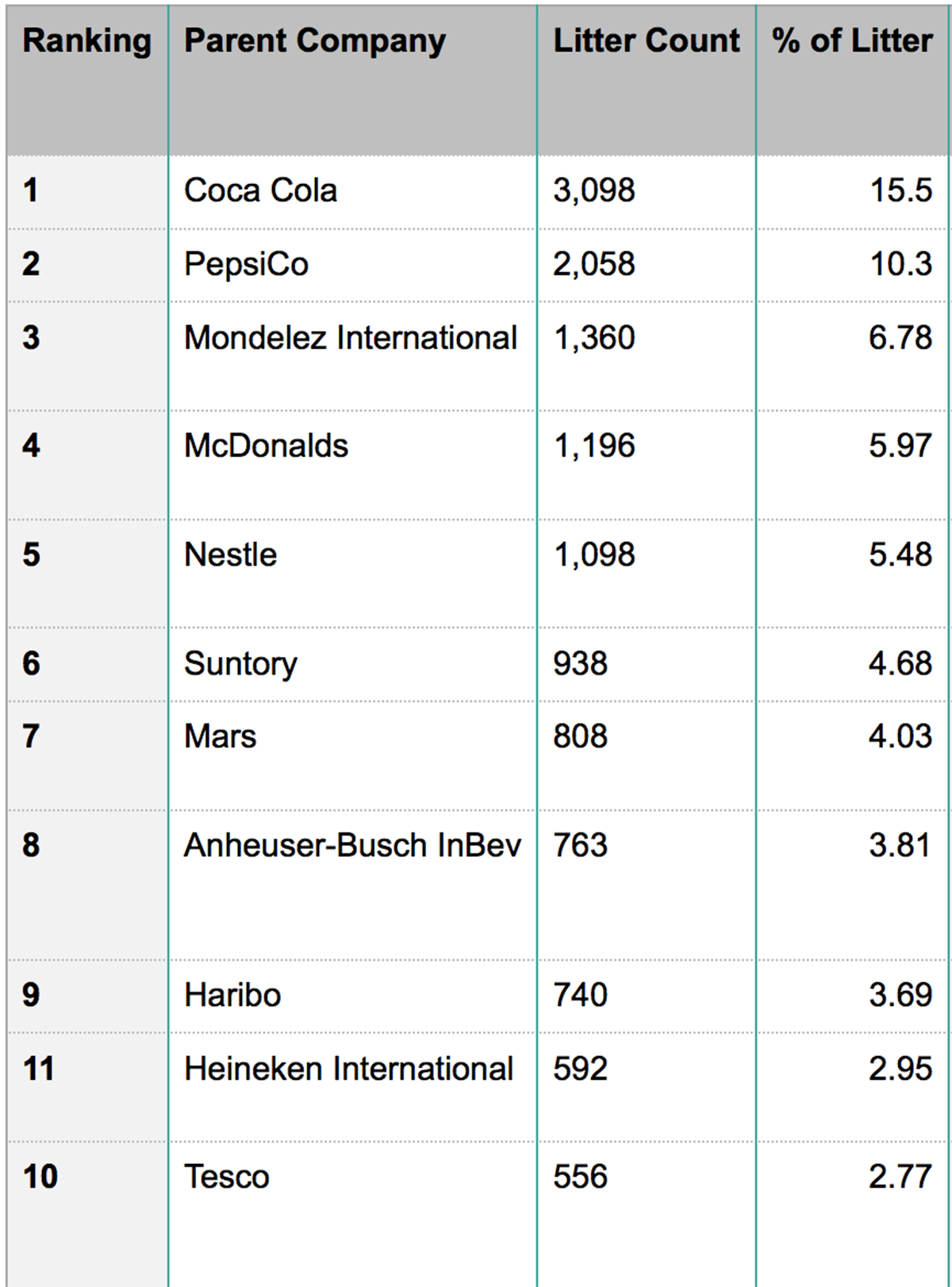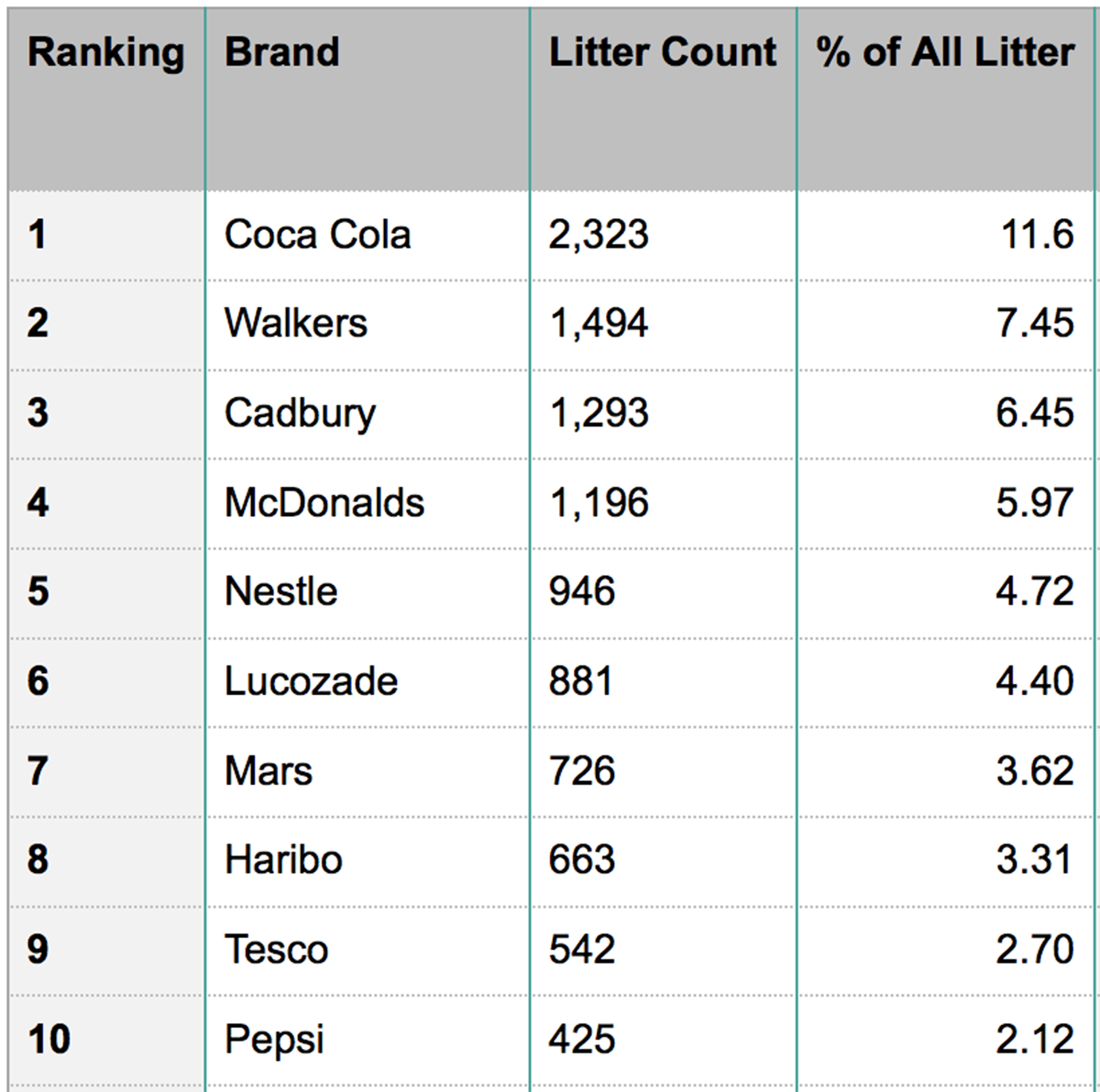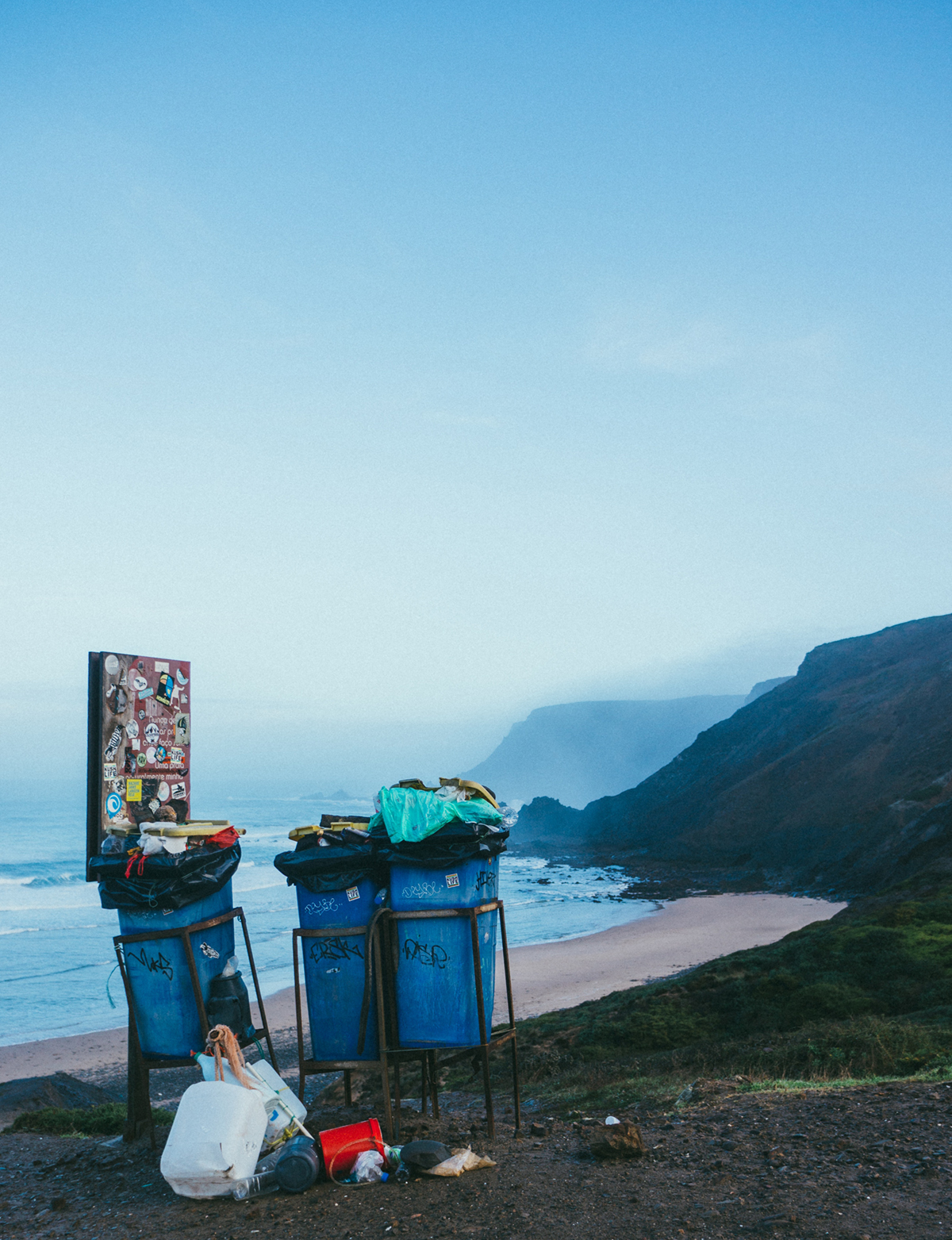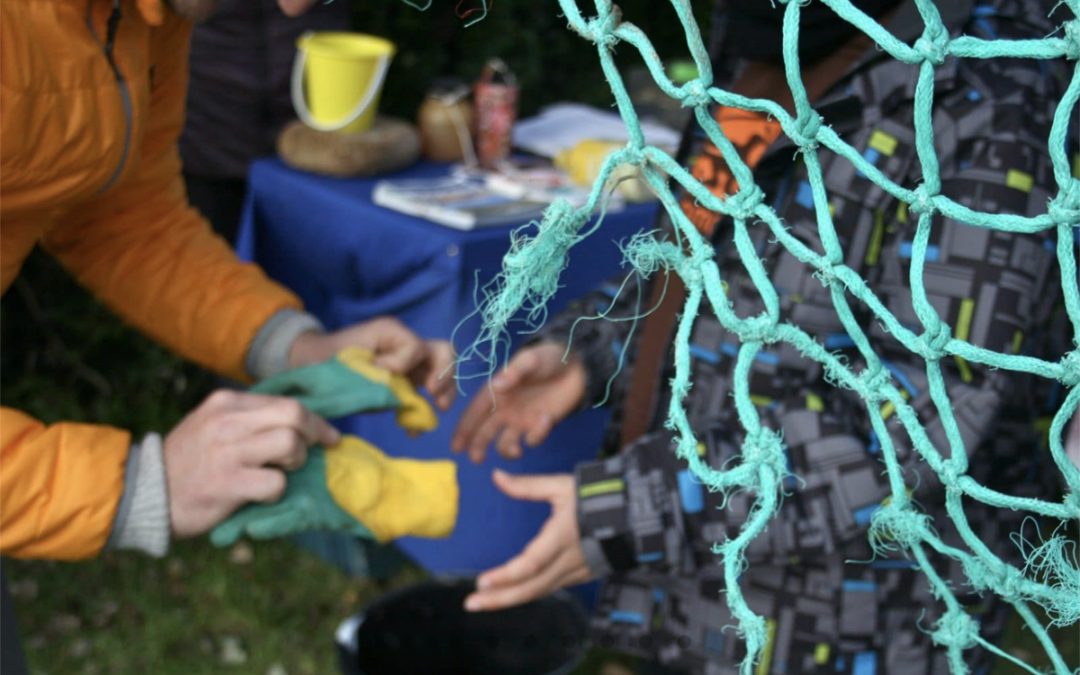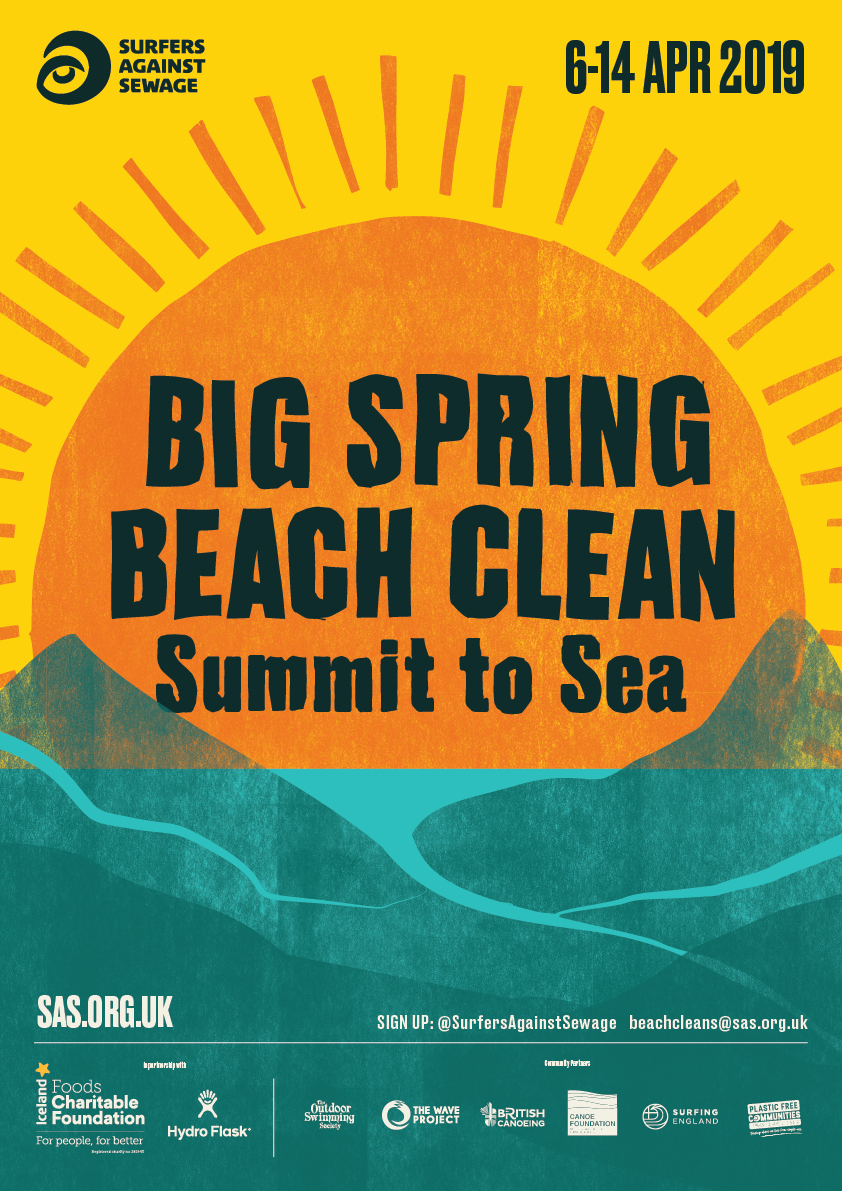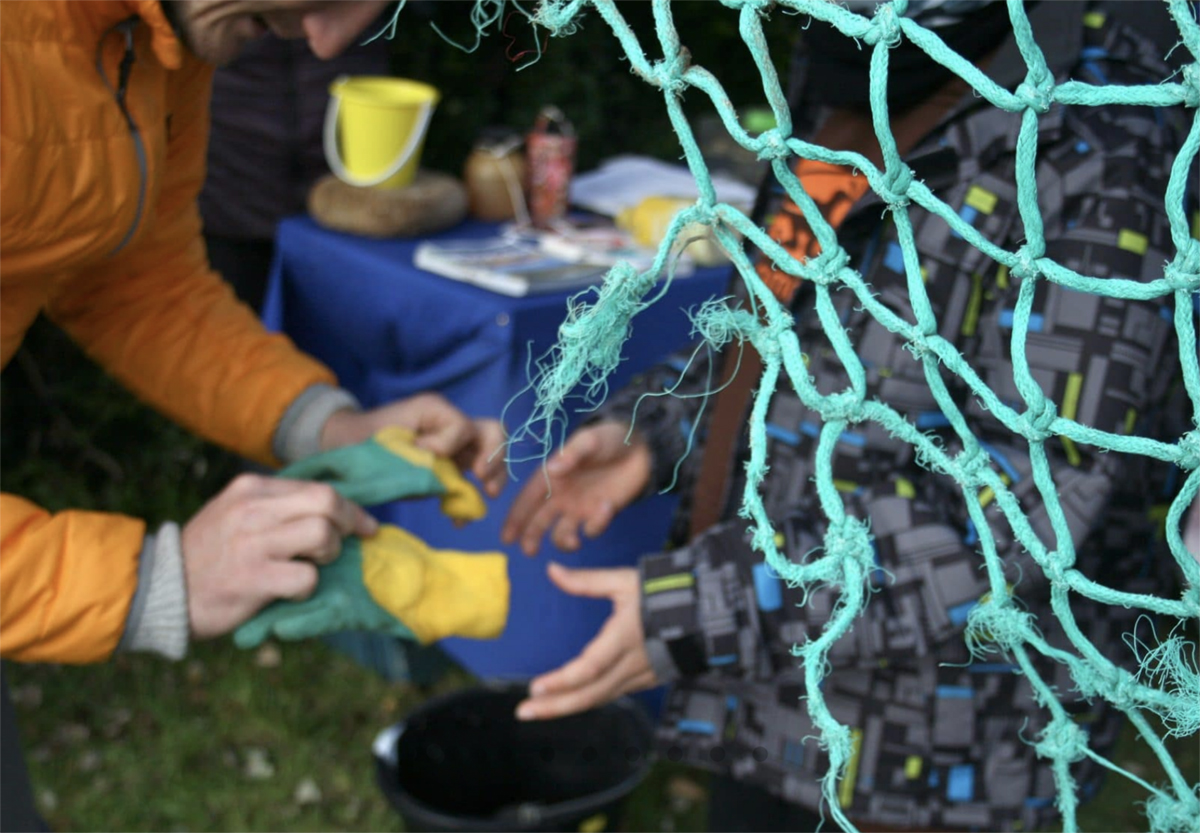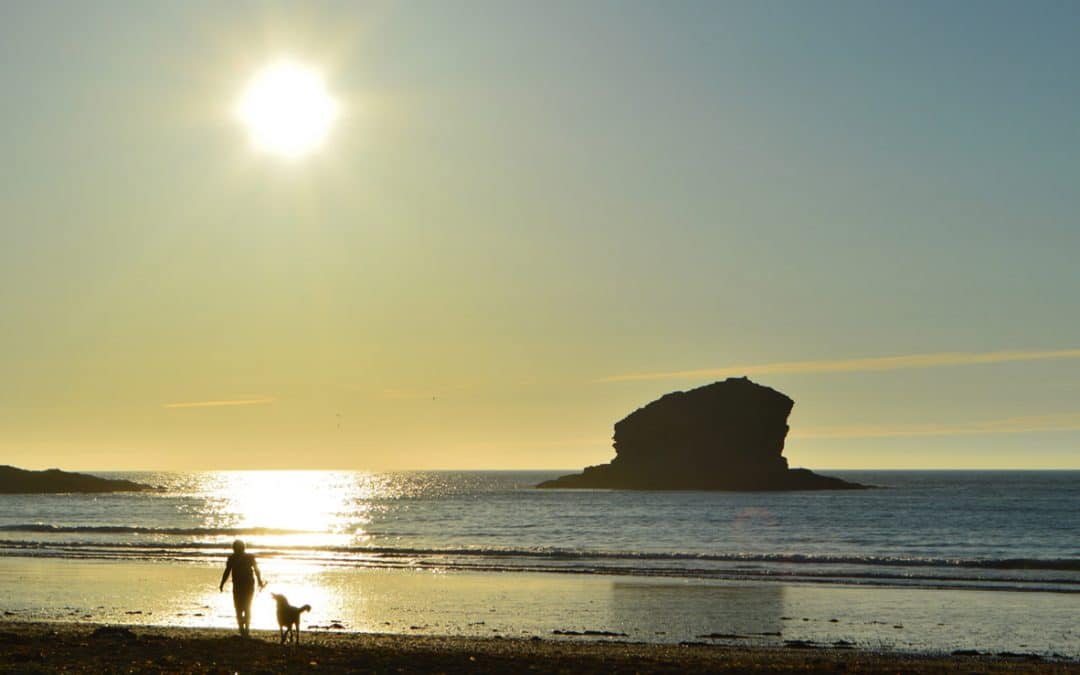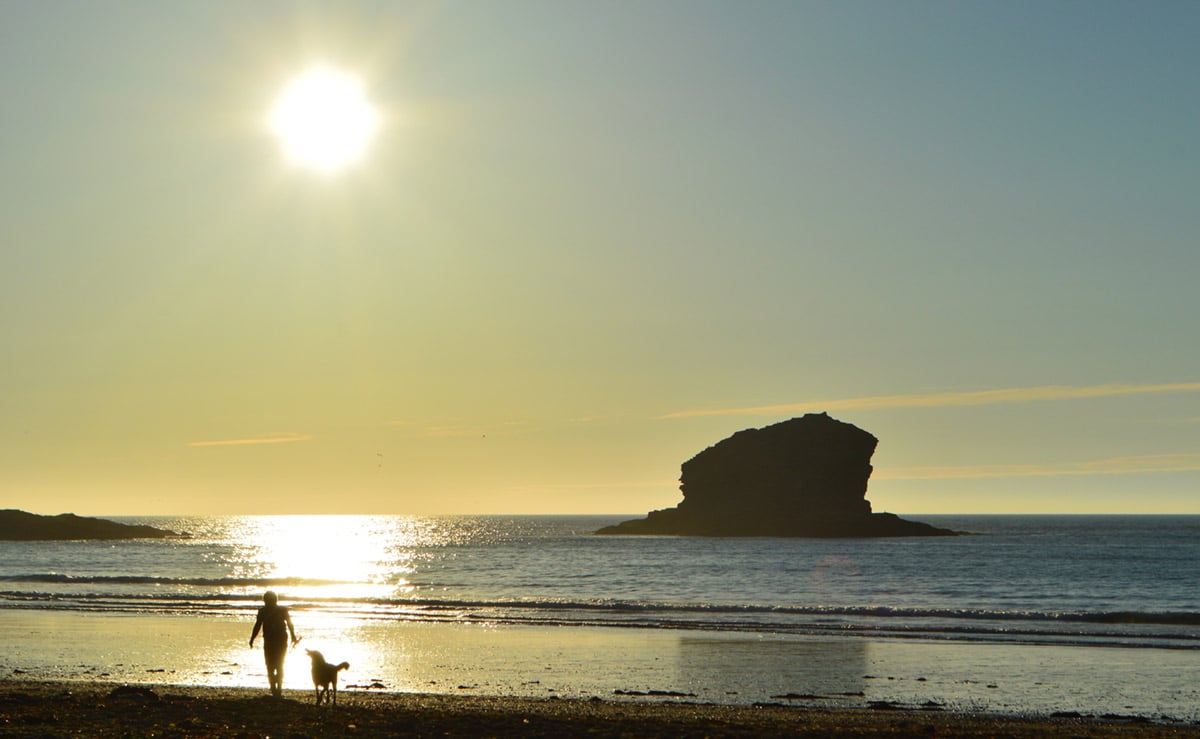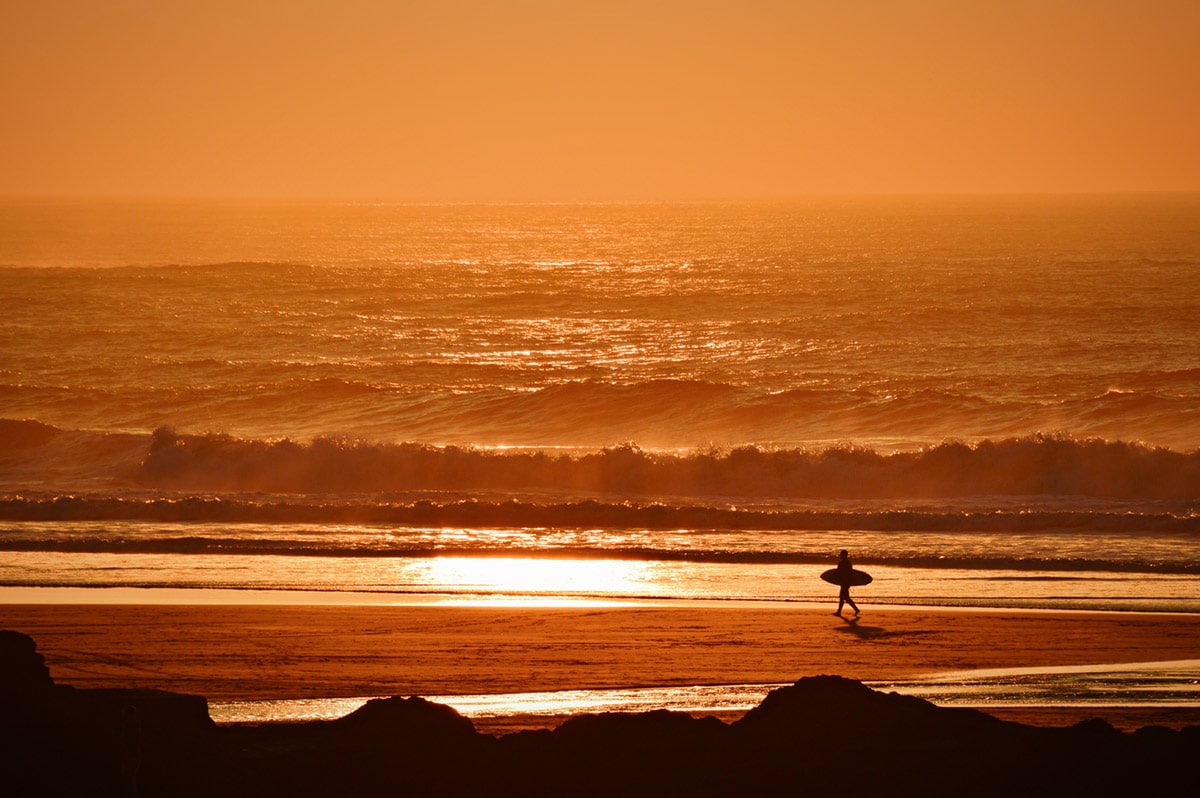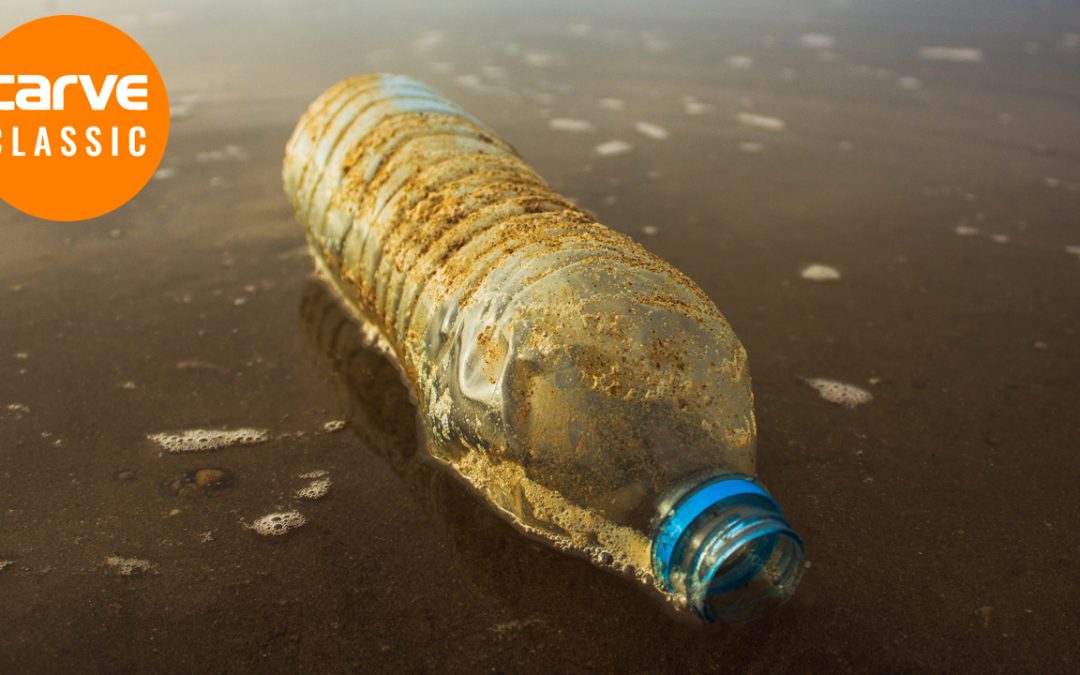
Carve Classic: The Plastic Age
Join us as we delve into the Carve Classic archives for some all time trips and interviews. Steve England caught up with Chris Hines MBE, a founding member of Surfers Against Sewage. Originally featured in issue 190.

Chris Hines, the only surfer we know with an MBE (for services to the environment), examines the source and solutions to the ocean plastic problem. It is a fight we have to win.
Plastic. It’s everywhere, from the moment you hit the alarm on your smartphone to the cleaning of your teeth at the end of the day with your plastic toothbrush and toothpaste from a plastic tube. Most of us will touch, see or interact with plastic hundreds of times a day, me included. It’s the current norm and one of the results is the almost unbelievable level of plastic pollution in the oceans.
Back in 2006 in an essay I wrote for Andy Hughes’ brilliant book Dominant Wave Theory (*1). I did a little beach clean and then looked at how all of those bits of plastic were, in some way, connected to my life … and it’s the same for all of us. We are all deeply embroiled in this plastic problem and we are all going to be involved in the solution to it. Many people are doing lots of individual actions but that’s a tiny percentage of us and this plastic crisis isn’t going to be overcome on the fringes and, I would argue, the solution is about far more than plastic. We need mainstream change.
If plastic pollution is everywhere it is nearly outweighed by the number of people and organisations who are on the plastic campaign trail and the campaigners are on fire with Surfers Against Sewage leading the charge. Awareness is at an all time high. The population want this sorted but ultimately a long-term solution to our pollution of the planet will require a different attitude and one that a lot of people, especially business aren’t going to want to hear:

We have come to believe that we can, and should be able to, have as much of anything we want, whenever we want it and don’t even think about the consequences. Consumption has been disconnected from any moral compass and we’ve lost our way.
The economic structures of the neoliberal western world are all based around growth. More, more, more! Research from Bioregional shows that if all seven billion inhabitants want to consume like the average North American then we would need five planets. For the average European it’s three. (*2). The planet does not have that carrying capacity. It doesn’t work. The growth addicts have even stolen the term “sustainability” and come up with “sustainable growth”! On a single planet there is no such thing!
There are massive powers stacked up to keep selling us this version of the world, to keep selling us more. But much of it is a hoax, brought to you by advertising agencies that make you feel inadequate because you don’t have the latest phone, surfboard, bike or whatever. And those agencies are just working for the companies who want to sell you more and more. With built in obsolescence and constant development, the moment you buy something its already out of date and we’re constantly inventing another hundred things that we all must have. Our relationship with plastic is just a symptom of a life in discord.
One quick plea for climate change: Whilst the plastics issue is important we also need to remember climate change. It’s not as visible and whilst everyone is fixated with plastic, climate change is not getting as much attention. Remember it’s the same people who are giving you climate change who are giving you plastic pollution. Those good old oil companies!
When Surfers Against Sewage started back in 1990 our primary aim was to stop the 400 million gallons of raw sewage that the Dirty Man Of Europe (the UK’s environmental nickname in the 80s and 90s) crapped out into our coastal waters every single day. Mixed in with that sewage were countless plastic panty liners and condoms. Ironically having the plastic panty liners helped, as it made the sewage slicks more visible. The history of those first ten years of Surfers Against Sewage shows what can be achieved and in what timescale. The infrastructural change to go to from 400-million gallons crude, to all continuous sewage discharges receiving at least secondary treatment and tertiary treatment for two thirds of that took 15 years and a massive engineering project worth £5.5 billion. The difference between 1990 and 2005 (and now) in terms of the sewage in our coastal waters is like chalk and cheese. Porthtowan Beach used to be known as ‘Porthtampon’ (we even managed to get ‘Porthtampon’ into a House of Commons Select Committee report) with hundreds of panty liners and condoms coming in with the slick of sewage every day. When they weren’t getting stuck in your hair or wrapped around your legs or leash, they’d dry and blow up the road and onto the forecourt of the village shop. Thankfully they and the sewage have now 99 percent gone.

But in some ways we had it easy. There was tough European legislation such as the EC Bathing Water Directive (1976) and the EC Urban Wastewater Treatment Directive (1991) to act as a focus and a reference point, a stick with which to chase the polluters with. The UK government was doing its best to wriggle out of its obligations and hence the need for the SAS campaign of the 1990s. Make no mistake that was still a very tall challenge. Unbelievably the whole plastics problem has hit without any relevant legislation being in place. Neither the EC Waste Framework Directive (1975) EC Hazardous Waste Directive (1975) really took plastic into account, although maybe there could have been a legal challenge over plastic waste being hazardous , but yes you got it, no-one saw this coming! So this is challenging and complex work to even have the legal, legislative tools with which to force everyone to the table. Unfortunately many of the big players will simply not engage until they are forced and that force has to have teeth that can bite.
SAS have already helped secure some vital bits of legislation Single Use Carrier Bags Charges (England) Order 2015 and a government commitment to a national deposit return system for some plastics but there are still more needed before all the legal sticks are in place. We need government to match the level of commitment and pace being shown by the campaigning organisations. We need to be cutting off the tide of plastic pollution now. Personally I think it is an outrage when a government says it will sort excessive plastic packaging within 25 years! I can see the argument of time needed to change legislation and infrastructure, but 25 years … come on! The supermarket Iceland and other industry leaders are doing it now and blazing the trail. There is already a massive waste management infrastructure in the UK and the vast majority of waste, plastic included, is either recycled or collected through household collections and disposed of to landfill or incineration, but it will need more work and investment. This isn’t going to be easy but it can be done. Again back to the sewage there were certain companies Dwr Cymru/Welsh Water and Wessex Water who pushed the boundaries and changed the game.
Fundamentally we need to have a wider understanding of our roles as citizens of this planet.
Ocean plastic is an emergency and of global importance. Imagine turning up at an intergalactic planetary hospital Accident and Emergency Department and Planet Earth and The Oceans are screaming: “Save me! Do something, this HURTS! and the Governments/Doctor saying: “Hmmmm let’s do some consultation on this.” Reality is the whales are washing up full of plastic crap like some self-sacrificing suffragettes, the albatrosses are screaming and dying.
The danger of too much consultation is that the British Retail Consortium, the soft drinks industry etc. and the plastic producers along with big oil will all lobby hard to delay it, legally challenge it and ultimately hope that the whole infernal issue just goes away.

But let’s just take a step back and look at this whole plastic issue. Is plastic in itself an evil? It’s safe to say that plastic has had a profound affect on us as a species as well as the planet and there have been a lot of positive benefits as well as the downside. Many of us reading this today will have benefitted from the medical uses of plastic in life saving medical equipment. The easy to use contraceptive pill packaging that showed the day of the month helped revolutionise women’s ability to take control of when to have children and control of their lives. The use of plastic in cars and other forms of transport helps reduce weight and therefore reduce the CO2 footprint and hence has a beneficial effect on climate change. There are many other examples.
As surfers and people who have an interest in surfing, climbing, cycling, exploring and general outdoor activities plastic has benefitted us. Plastic will have played a massive role in opening up these sports and activities due to decreases in weight and increases in durability. There was even a 1969 surf movie called The Fantastic Plastic Machine!
So plastic is not in itself necessarily bad, it’s the way we use and abuse it.
Research (now known as internet searches) tell you the first totally synthetic plastic, Bakelite, was made in 111 years ago in 1907. The brilliant Radio 4 series Plastic Fantastic (*3) (listen to all three parts its brilliant) said that the first plastic was invented in a contest to find a replacement for the ivory for elephant tusks used to make billiard and snooker balls. Importantly it was cheap and therefore commercially viable. One web search shows: “…it had no molecules found in nature…” Now if ever there was a reason for caution that should be one. If something is totally unnatural then “Proceed with caution!” signs should have been flashing up. Off went the scientists working hard to develop other plastics such as polystyrene, polyester, polyvinylchloride (PVC), and others. The oil industry must have loved it! Not only did their liquid black gold create energy by burning (again another unnatural activity that has helped land us in a right old pickle with climate change and air pollution) but they could now make hundreds of thousands of products from it.

Of course there were a few inconvenient obstacles to remove such as hemp – the perfect natural, renewable alternative. Henry Ford of Ford Motors made car panels out of hemp and even planned to run them on biofuel. So the plant was demonised and linked to its relative marijuana and heavy lobbying by the likes of chemical giant DuPont saw the 1937 Prohibitive Marijuana Tax Law that made not only marijuana illegal but also the wonder plant hemp. The DuPonts of this world were joined by William Randoph Hearst, a media magnate who owned 75 percent of the newspapers in the USA, and wanted all of the paper to be sourced from his logging companies and not hemp. (Anything sounding familiar?) Just think what the world and our oceans would be like if hemp had been the material used in the mass expansion of our consumer world…
The plastic and oil industry came out post Second World War with a clear playing field and very few critics. Everything was white, shiny and clean! Big production was king. The consumer age was upon us and off it ran completely out of any restraint or understanding of the long-term planetary impacts. Our world became plastic. As Polystyrene (and X-Ray Spex) sang on the Germ Free Adolescents album (*4):
I drove my polypropolene
Car on wheels of sponge
Then pulled into a wimpy bar
To have a rubber bun
And watched the world turn day-glo
You know you know
The world turned day-glo
You know
Oh-oh
The X-rays were penetrating
Through the laytex breeze
Synthetic fibre see-thru leaves
Fell from the rayon trees
And watched the world turn day-glo
You know you know
The world turned day-glo
You know
Oh-oh
Find it and play it LOUD!
After leaving SAS in 2000 I worked as Sustainability Director at the Eden Project and originated the Waste Neutral concept. This followed the normal waste hierarchy of “reduce, reuse and recycle” but had an additional element of buying back a weight of products made from recycled materials that was equal to the residual waste that Eden sent to landfill, or to be recycled. This had two effects: Firstly it encouraged a reduction in all consumption as reducing the weight of materials sent to be recycled meant we had to buy less recycled product. Secondly it gave value to the recyclates, which helps pull them out of the waste stream and turn them into a resource. If something has a value it isn’t thrown away. This is similar to the circular economy now being pushed hard by the likes of the Ellen MacArthur Foundation, but first conceived in 1966 by Kenneth Boulding in an essay “The Economics of the Coming Spaceship Earth” often cited as the origin of the phrase “circular economy”. (*5)

We need to be realistic and understand that the opposition to positive change is huge. The UK plastics industry alone has an annual turnover of over £23.5 billion and employs over 170,000 people. The global plastics market is projected to reach $586.24 billion US dollars by 2021 and the plastics industry is supplied by the oil industry.
These companies aren’t going to give up easily! They’re going to fight this every step of the way. In fact they don’t see reduction in plastic at all, they see… yes you guessed it… GROWTH! Big oil companies are seeing their market for combustion engines contracting so they need new markets for the base product and that means more plastic. Right now there will be hundreds if not thousands of people looking at new markets and new products that can be made of plastic.
We need a marked change in the way we consume in general and we need to redefine our relationship with plastic and we need to own that change as the mass population. I recently spent two days talking to over a thousand students at a school in Geneva. They haven’t waited for others to act. They’ve removed all the plastics from their food outlets. They call it: “The new norm!” The planet and its oceans need a “New Norm!”
I don’t want this to feel negative and I am an optimist. The campaigners are doing an amazing job and it feels like we could be on the cusp of turning this whole plastic issue around but have no doubt there is a long hard way to go yet. To solve this is arguably more complex than solving sewage as it’s such a wide issue with so many players and products involved, but it can be done. I will continue to pay my subs to the environmental groups and would strongly urge you to do the same (How can any surfer not be a member of SAS or your countries equivalent? I’ve paid my membership for 28 years now and will continue to do so till the day I die). I will continue to sign the petitions, to talk to others, to say ‘No’ to things I don’t need or often even want and love and look after the things I have. Cherish them, value them and when you’re done try and find another home for them or dispose of them in the right way. I will try and do my bit and would urge everyone to do the same.

Fundamentally we need to have a wider understanding of our roles as citizens of this planet. We need to think about and understand our footprints. No one is perfect and reality is we can’t be but we can think and challenge ourselves and live a more examined life. This doesn’t have to suck the joy out of our lives but can become a quiet element of how we live. We need to think of what I refer to as: “The Deal”. For the majority of us, we are lucky. We’re warm, we’ve got homes and we’ll eat today and we get to live here on this amazing planet and do amazing fun things. For us as surfers we even get to GO SURFING! We are the luckiest! The deal is we give back, we make a difference with our lives and we tackle the plastic problem as part of the wave of activism that helps us tackle all of the world’s problems. And if we can commit to that deal then it’s only fair that we demand that government and business change … NOW. Step up and lead! Commit to the take off! We’ll be hooting you all the way!
Chris Hines was a founding director of SAS leading the campaign from 1990 to 2000, Director of Sustainability at the Eden Project and a special advisers to the Minister for Environment, amongst other things.
*1. Dominant Wave Theory by Andy Hughes, Booth-Clibborn ISBN 1 86154 284 4 Hughes, A. (2007). Dominant Wave Theory. (1st ed.). London: Booth Clibborn Editions.
*2. https://tinyurl.com/y7jop9ad
*3 BBC Radio 4 Plastic Fantastic Professor Mark Miodownik explores our love/hate relationship with plastic. https://tinyurl.com/y8ytbmn5
*4 Polystyrene and X-Ray Spex, The Day the World Turned Dayglo. The Day The World Turned Day-Glo” / “I Am A Poseur” (March 1978: EMI International, INT 553) – No. 23 UK Singles Chart[41] From the album Germ Free Adolescents (November 1978: EMI International, INT 3023) – No. 30 UK Albums Chart[41]
*5. As early as 1966 Kenneth Boulding already raised awareness of an “open economy” with unlimited input resources and output sinks in contrast with a “closed economy”, in which resources and sinks are tied and remain as long as possible a part of the economy.[2] Boulding’s essay “The Economics of the Coming Spaceship Earth” is often cited as the origin of the phrase “circular economy”.[2]

